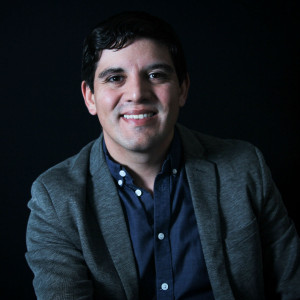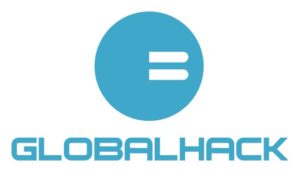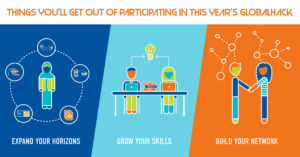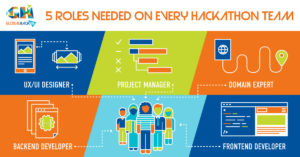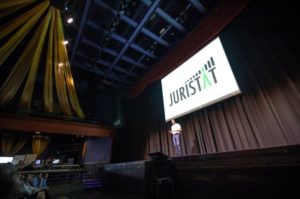
GlobalHack’s 2018 Hackathon To Focus On Improving The Foreign Born Experience
Until June 8th, all available tickets for GlobalHack 2018 are 50% off. This year's hackathon represents the 7th flagship event for GlobalHack.
GlobalHack’s biannual flagship hackathon event returns in 2018 to the Chaifetz Arena on October 12-14.
If you’re new to the concept, know this: GlobalHack‘s hackathons are mission-driven events, seeking answers to locally relevant topics which can be scaled to regional and national levels.
The challenge for this year focusses on ‘foreign-born experience’ – namely that of both immigrants and refugees.
Seemingly Insurmountable Global Problems
From Brexit to border walls, unless you’ve been hiding under a rock, you probably don’t need the reminder that immigration is currently the most contentious issue in global politics.
Every year, Google releases infographics and charts highlighting the most searched topics of the year. In 2017, according to their Zeitgeist video below, the questions users most asked were, “how much will the wall cost?”, “how many refugees in the world?”, “how to help refugees… flood victims… puerto rico… mexico.”
Solutions are direly needed, yet energy and incentives are often poorly aligned to systematically appraise the issues nor successfully respond to the challenge ahead.
Any response can seem altogether too small a solution to too big of a problem. Current efforts can often feel scrambled, unfocused and lead to inertia, anger and frustration.
Nonetheless, any answer is often better than none. Trying and failing is better than doing nothing at all.
This is where GlobalHack takes a stand against inertia by providing a “hackathon” – a condensed approach to sourcing the wisdom of the crowd to tackle global challenges through a high-energy and high-intensity 72-hour competitive event.
Break Global Issues Down Into Smaller Challenges
From refugees fleeing a war-torn Syria to coast guards rescuing overcrowded rubber dinghies deflating over the Mediterranean sea, immigration policy and refugee movements are not just creating a global humanitarian crisis, but fundamentally challenging the identity of modern society. Planning around a changing climate also demands that we anticipate more global migration, not less.
Although such problems may seem an entire world away from home, immigration and the resettlement of refugee populations cause fierce debates around the use of tax payer revenue and pressures on public infrastructure. Yet, conversely, recent research from the Brookings Institute, indicates that modern immigrants are well educated and highly skilled, and those cities that see the fastest growth of their immigrant populations tend to be more resilient to economic recession overall.
St. Louis offers a suitable canvas for GlobalHack 2018 especially, due to its rich history of allowing immigrants and refugees to living off their own enterprise: the 1904 World’s Fair was a celebration of immigrant-owned businesses, from Hot Dogs to Waffle Cones.
Nonetheless, the percentage share of the population made up by foreign-born families has remained relatively static in recent years (around 4% over the last 18 years). The team at GlobalHack wants the 2018 event to help find elements in technology and software that can help sustain foreign-born populations as they adapt to a new city.

Form Your Own Team Of Bounty Hunters
Hackathons offer a vehicle for solving real-world problems. By curating an intense and competitive environment, GlobalHack brings people together to try and solve problems and, at least, discover new opportunitiess.
Competitors are divided into three divisions: Professional, College, and Youth. Each of these groups then compete for cash prizes, which are awarded to the top three teams.

Registration can be done as a team of up to 8 members or you can attend as an individual, using the opportunity to meet and form a team with other participants within the event.
Individual members should have a baseline level of tech experience, project management, and elements of presentation, with coding experience recommended, but not essential. Largely, the benefit of forming teams stems from complementary skill sets.
When approaching the challenges in the three-day format, participants first receive the new code briefing on Friday evening. Publically-available API’s are permitted to be used, but pre-designed applications are restricted to maintain an even playing-field for all competitors. Saturday and Sunday consist of software development and designing programs that in some way respond to the issues of the foreign-born experience.
In a phone conversation with EQ, Matt Menietti, Executive Director of GlobalHack rigorously avoided dropping any hints as to what the specific challenge will be, but he did indicate that some of the fundamental questions to consider for GlobalHack 2018 include:
“Where is there friction in the incumbent systems? Where is there missing information or data? How can we get people to locate and share information where it currently exists?”
Change The World
The format of these hackathon events accelerates solution design around civic issues, by bringing in both stakeholders and people who can set plans into motion. All of these elements culminate in a three-day crucible of driving ideas, concepts, and prototypes to catalyze the problem-solving process.
Over 1,000 participants took part in GlobalHack VI in 2016, arriving as individuals or registering in established teams. As seen in past events, these hackathons also serve as startup recruitment opportunities and play a catalyzing role in St. Louis’ tech startup scene and innovation ecosystem.
Experimental results from past hackathons can establish real solutions. For instance, yourstlcourts.com is a local resource resulting from a GlobalHack event challenge around the concepts of equal access across St. Louis.
Similarly, as a result of a hackathon, GlobalHack’s co-founder, Drew Winship, founded Juristat, a big data platform coined as “moneyball” for lawyers. Subsequently, the startup has raised over $1.8 and now employs dozens in their offices in downtown St. Louis.
Get Involved
In that sense, GlobalHack packages a try-before-you-buy recipe and set of ingredients that ignites the creativity of the candidate side of St. Louis’ future tech workforce.
The organization elevates the importance of roles in Computer Science education for students and children interested in tech careers. Menietti stresses a desire is to get as many students as possible exposed to established tech and software programs.
Rather than focusing on a smaller number of ‘high potential’ students, GlobalHack invites you to get personally invested in forming your own swat team or circling up with other digital bounty hunters to take on a challenge no one else is really solving… Just to see what you can do.
Personally speaking, one thing I love about GlobalHack’s role in the St. Louis Startup Ecosystem is that society rarely reserves the time nor creates the incentives to tackle such meaty issues.
What’s more, through the hackathon concept, a promising solution does not have to be a panacea. It just has to chip away at the larger problem and gradually transform it into smaller and more manageable issues.
Also, the team spirit, attitude and willingness to dedicate time to ‘try anything,’ that GlobalHack cultivates locally naturally anticipates some chance of success. I imagine it pushes contestants to choose to focus on the things they can do, rather than the things they can’t.
Which, in general, is a nice way to think when approaching any insurmountable obstacle: that breakthroughs can happen too.
Crazy Discounts: Until June 8th, all available ticket types for GlobalHack 2018 are 50% off!

